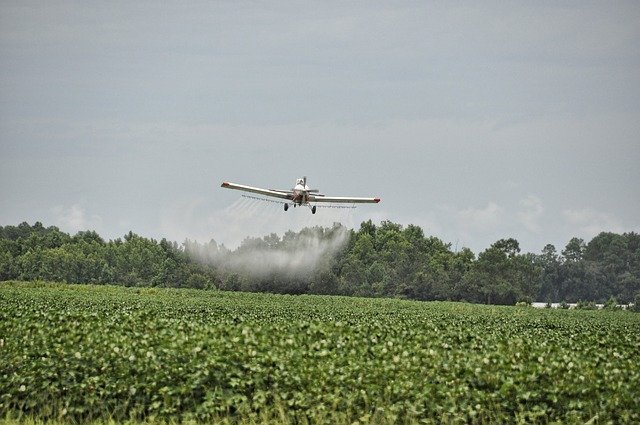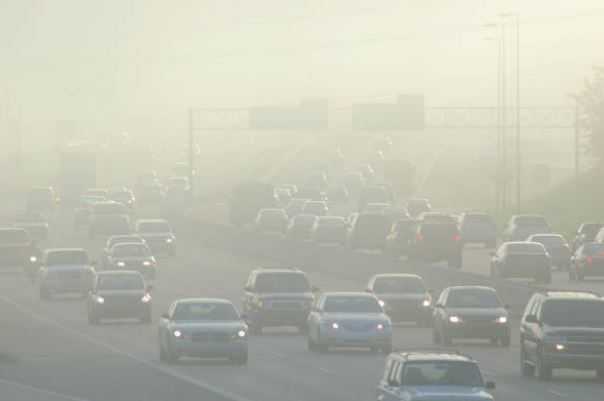What Is Pesticides And Its Effect On The Environment

In one way or another, we all consume a lot of chemicals.
We inhale them, drink them, and eat them. Pesticides in foods are the most problematic.
Although we may think we are consuming fruits and vegetables, we are actually ingesting toxins that can build up in our bodies and make us sick.
.jpg)
This is food that is supposed to be nutritious and beneficial to our health. Pesticide residues in and on food.
Exposure to Pesticides
It is in the air as a result of spraying in fields, applied to roadsides to control weeds and even contaminates drinking water.
These are all sources of pesticide exposure for the general public.
In addition to the active ingredients, additives are likely to be used to improve the pesticide's stickiness and consistency.
Pesticides, in general, are poisons intended to destroy insects, weeds, small rodents, and other pests, even though the most dangerous chemicals have already been banned for use in agriculture.
The long-term consequences of these poisons on people are unknown.
When we consider we may be exposing children to these toxins, even the smallest chance is too much.
.jpg)
We should make every attempt to limit our exposure to these harmful chemicals.
There's also the issue of pesticide interaction, as well as pesticide interaction with other chemicals found in the environment.
We just don't know enough to know if these chemicals are healthy for humans but harmful to pests.
Types of pesticides
Pesticides come in a variety of forms. Generally, pesticides are divided into two categories:
Organochloride
Organisms are killed by organochloride which attack their nervous systems.
In animals, it has been linked to cancer, birth defects, and genetic changes.
They are fat-soluble and are processed as fat in the body.
They last much longer than organophosphates.
Organophosphates
In pests, organophosphates obstruct nerve conduction.
They are the most widely used pesticides today.
They are water-soluble and degrade quickly.
Effects of pesticides on the environment and human health
Pesticides have a negative impact on the environment and human health.
These chemicals are believed to be the cause of a variety of illnesses in humans and animals.
The mechanism of action of pesticides, as well as their side effects, has been studied extensively over the last few decades.
This perspective considers both past and present research in the field of pesticides and associated disorders.
We looked at the most common diseases linked to pesticides, such as:
- Cancer
- Parkinson's disease
- Alzheimer's disease
- Respiratory and reproductive tract disorders have also been attributed to pesticides.
Pesticide-induced oxidative stress
Many pesticides cause harm oxidative stress, which is a significant mechanism.
Oxidative stress is thought to be the cause of DNA damage, which can lead to cancer and other diseases.
Many pesticides have been found to modulate gene expression through non-coding RNAs, histone deacetylases, and DNA methylation patterns, suggesting that they have an epigenetic role.
.jpg)
According to Pesticide Action Network UK, studies have shown:
- 93% of non-organic oranges analyzed contained pesticide residues
- 78% of apples analyzed contained pesticide residues
- 43% of all fruit and vegetables analyzed had detectable levels of pesticides
- 50% of lettuce contained residues from 7 or more chemicals
- 71% of cereal bars with residues
- 83% of oily fish showed pesticide residues
Foods that have been contaminated
The secret is education. Knowing which food contains the most toxins will assist us in making the best decisions.
This may include avoiding the most polluted fruits and vegetables and consuming the least polluted or purchasing organic produce instead.
Fruits regularly topped the list of the most infected produce, accounting for eight of the top twelve polluted foods, according to studies.
.jpg)
- Apples
- Bell Peppers
- Potatoes
- Pear
- Imported Grapes
- Nectarines
- Celery
- Strawberries
- Cherries
- Red Raspberries
- Spinach
- Peaches
Food that is less polluted
You're not a fan of broccoli? They are among the least polluted. Others are:
- Asparagus
- Papaya
- Avocados
- Sweet Corn
- Pineapples
- Broccoli
- Cauliflower
- Sweet Peas
- Kiwi
- Mangos
- Bananas
- Onions
Solutions to getting rid of pesticides from our food
While washing before eating is recommended because it reduces pesticide residues on the surface of the crops, the majority of contaminants are absorbed into the plant and cannot be washed away.
Some pesticides are designed to bind to the surface of the crops and are not removed by washing.
.jpg)
Other contaminants may be removed by peeling, but not all, and many essential substances will be discarded along with the skin.
So, on the one hand, we need to consume plenty of fruits and vegetables for a balanced diet, and on the other hand, we need to limit our pesticide consumption as much as possible.
We have only a few choices for self-defense:
(1) Thoroughly wash all vegetables and fruit;
(2) Purchase organic foods
(3) Eat a diverse diet;
(4) Alter eating habits to consume more low-pollution produce.
In a simulation of consumer eating habits, it was shown that modifying only a few eating habits would significantly reduce pesticide ingestion.
References
Author Bio
Writer comprises full-time and freelance writers that form an integral part of the Editorial team of Hubslides working on different stages of content writing and publishing with overall goals of enriching the readers' knowledge through research and publishing of quality content.
Article Comments
No Comments!
At present there are zero comments on this article.
Why not be the first to make a comment?
Similar Articles
Sponsor
Search Articles
Experts Column
Latest Articles
Featured Articles
Most Popular Articles













